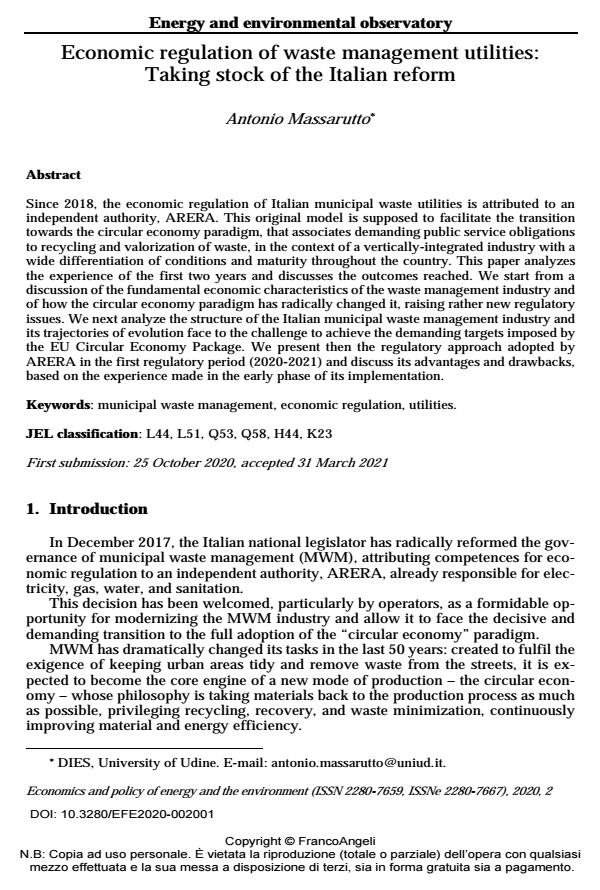Economic regulation of waste management utilities: Taking stock of the Italian reform
Journal title ECONOMICS AND POLICY OF ENERGY AND THE ENVIRONMENT
Author/s Antonio Massarutto
Publishing Year 2021 Issue 2020/2
Language English Pages 29 P. 5-33 File size 317 KB
DOI 10.3280/EFE2020-002001
DOI is like a bar code for intellectual property: to have more infomation
click here
Below, you can see the article first page
If you want to buy this article in PDF format, you can do it, following the instructions to buy download credits

FrancoAngeli is member of Publishers International Linking Association, Inc (PILA), a not-for-profit association which run the CrossRef service enabling links to and from online scholarly content.
Since 2018, the economic regulation of Italian municipal waste utilities is attributed to an inde-pendent authority, ARERA. This original model is supposed to facilitate the transition towards the circular economy paradigm, that associates demanding public service obligations to recy-cling and valorization of waste, in the context of a vertically-integrated industry with a wide differentiation of conditions and maturity throughout the country. This paper analyzes the ex-perience of the first two years and discusses the outcomes reached. We start from a discussion of the fundamental economic characteristics of the waste management industry and of how the circular economy paradigm has radically changed it, raising rather new regulatory issues. We next analyze the structure of the Italian municipal waste management industry and its trajecto-ries of evolution face to the challenge to achieve the demanding targets imposed by the EU Circular Economy Package. We present then the regulatory approach adopted by ARERA in the first regulatory period (2020-2021) and discuss its advantages and drawbacks, based on the experience made in the early phase of its implementation.
Keywords: Municipal waste management, economic regulation, utilities
Jel codes: L44, L51, Q53, Q58, H44, K23
Antonio Massarutto, Economic regulation of waste management utilities: Taking stock of the Italian reform in "ECONOMICS AND POLICY OF ENERGY AND THE ENVIRONMENT" 2/2020, pp 5-33, DOI: 10.3280/EFE2020-002001